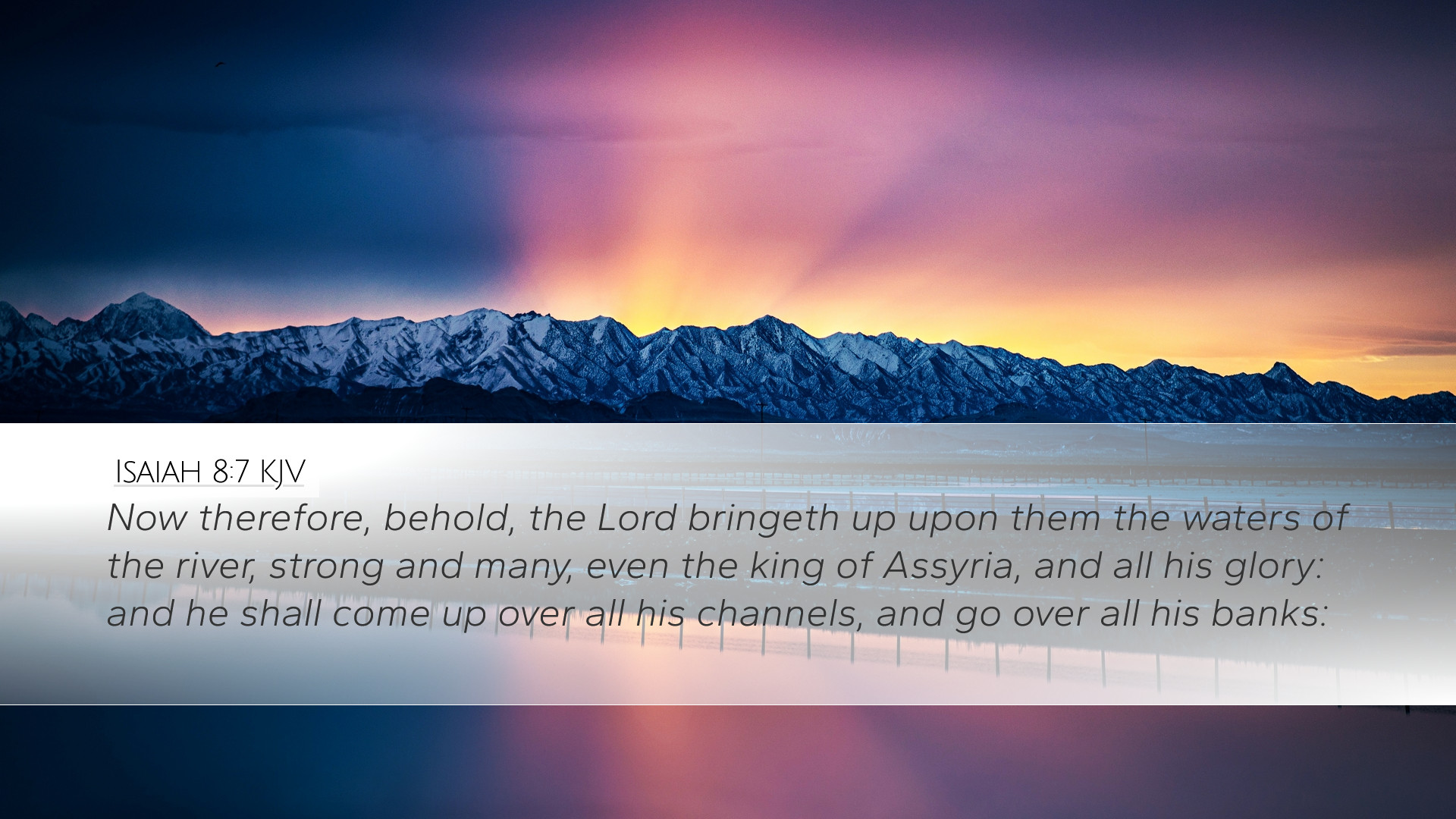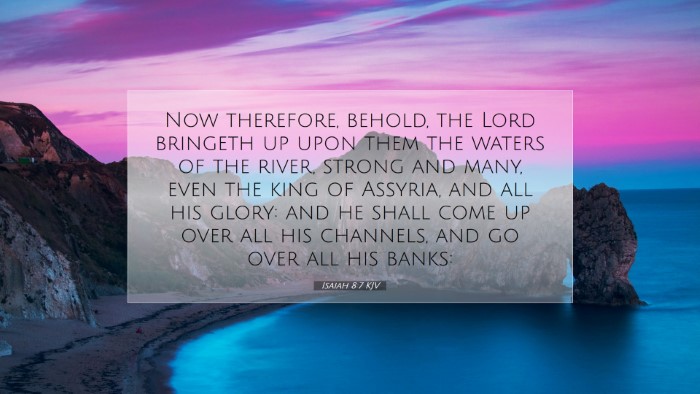Commentary on Isaiah 8:7
Isaiah 8:7 states:
"Now therefore, behold, the Lord bringeth up upon them the waters of the river, strong and many, even the king of Assyria, and all his glory: and he shall come up over all his channels, and go over all his banks."
Contextual Background
This verse occurs in a prophetic context where the prophet Isaiah is delivering a message concerning impending judgment upon Israel due to their lack of faith and reliance on foreign alliances rather than on God. The imagery of the overflowing river represents the powerful and overwhelming force of the Assyrian empire that is brewing to invade the land.
Theological Implications
Isaiah 8:7 serves as a poignant reminder of God’s sovereignty in the affairs of nations. The "waters of the river" symbolize not just physical power but also the overwhelming influence of the Assyrians, who are instruments of divine judgment. This leads to reflections on the nature of divine justice and mercy, where God sometimes uses even the wicked for purposes that ultimately fulfill His divine will.
Commentary Insights
Matthew Henry's Commentary
According to Matthew Henry, this verse illustrates the might and dominion of God over earthly powers. He emphasizes the metaphor of “waters of the river”, which signifies both the strength and the judgment of God. He notes that the Assyrian king represents a significant threat, embodying the culmination of rebellion against the ways of the Lord. Henry points out that although the Assyrians may appear daunting, it is ultimately God's hand guiding these events.
Albert Barnes' Exposition
In Albert Barnes' commentary, he elaborates on the historical context of the Assyrian invasion which serves as a divine response to Israel's unfaithfulness. Barnes highlights that the description of the Assyrians as "strong and many" reflects their overwhelming military capability and suggests a parallel to the spiritual barrenness of Israel. He encourages readers to understand that just as the Assyrians threatened to overflow Israel, so too do the consequences of sin overflow into the lives of the unrepentant.
Adam Clarke's Analysis
Adam Clarke provides a detailed analysis of the river imagery, aligning it with the chaos that will ensue as the Assyrians invade. He notes that the use of “banks” refers not only to physical barriers but also to the spiritual boundaries that Israel has neglected. Clarke emphasizes that this overwhelming flood symbolizes God's judgment for their reliance on foreign powers instead of seeking divine guidance.
Lessons for Today
Reflecting on Isaiah 8:7, there are several important lessons for pastors, students, theologians, and scholars:
-
Understanding Sovereignty:
The acknowledgment that God works through the circumstances and powers of this world is crucial for grasping the full narrative of scripture. It invites believers to trust in God’s plan, regardless of how chaotic or unmanageable life may seem.
-
The Dangers of Unfaithfulness:
Israel’s reliance on Assyria serves as a warning against substituting divine guidance for worldly wisdom. Modern believers are reminded to seek God's counsel rather than succumbing to the pressures of secular alliances.
-
Hope Amidst Judgment:
While this passage foretells judgment, it also hints at God's mercy and ultimate deliverance. In the midst of trials, there is always hope for restoration through repentance and alignment with God's will.
Conclusion
Isaiah 8:7 stands as a multifaceted verse rich with prophetic insight and historical significance. As we study it through the lenses of the past and present, we discover timeless truths about divine sovereignty, the importance of faithfulness to God, and the hope that persists even in judgment. Engaging with the insights of renowned commentators like Matthew Henry, Albert Barnes, and Adam Clarke, allows us to deepen our understanding of this profound text, equipping us for meaningful ministry and personal edification.


